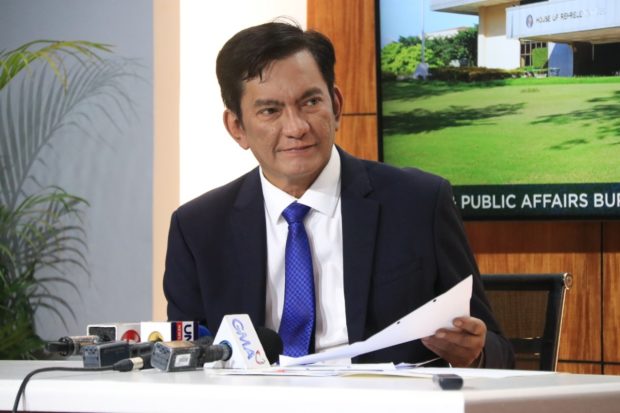House approves bill strengthening IPO-PHL’s functions advances

Albay Rep. Joey Salceda (FILE PHOTO)
MANILA, Philippines — A bill that would enhance the powers and functions of the Intellectual Property Office of the Philippines (IPO-PHL) has been approved by the House of Representatives on second reading.
During the session on Tuesday, House Bill No. 7600 authored by Albay 2nd District Rep. Joey Salceda was approved via viva voce or voice voting.
If the bill is enacted, additional wordings would be placed on Republic Act No. 8293 or the Intellectual Property Code of the Philippines, to broaden the scope of what could be considered as counterfeit or pirated goods — which would include content posted online.
Salceda, in his sponsorship speech, assured the public that people’s right to due process would not be violated.
“In practical terms, it allows the Intellectual Property Office of the Philippines to receive complaints and petitions to take down infringed content posted online, or to conduct site blocking. The complaints can be heard in a simplified manner that also adheres to the constitutional requirement of due process – including means for appeal,” he said.
Article continues after this advertisement“And within five days, the IPOPHIL can decide on the complaint, and 48 hours thereafter, compel an internet service provider to block the offending site,” he added.
Article continues after this advertisementThe bill also seeks to provide IPOPHL more enforcement functions, including the gathering of intelligence information, the conduct of investigations, and the development of countermeasures to piracy.
It also places responsibility on internet providers to comply with orders to disable websites found to have been hosting pirated content.
Salceda said the bill is necessary since digitalization due to the internet has made it so easy for content to be copied and made viral — which harms content creators whose work are being pirated.
“One pirated content becomes viral, it becomes very difficult to prevent other users from accessing it. Copyright laws become impossible to enforce on viral content. So, the point of any intellectual property enforcement law in the digital age must be to prevent infringement before it becomes viral,” he noted.